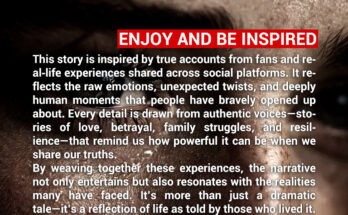I’m 35 and have been saving for years to buy my dream house. I chose not to have children so I could build financial security for myself, and that goal has shaped every careful choice I’ve made. My sister is 33 with four kids; she and her husband live paycheck to paycheck and never put anything aside. A few weeks ago she called crying: her youngest twins, two years old, needed urgent, expensive treatment. She begged for help. I told her no. I explained that I was saving for my house and that I couldn’t make her children my financial responsibility. She hung up crying, and I thought that was the end of it.
The next morning, my world flipped. My sister made a photo collage and plastered it all over Facebook. It showed me holding the twins as newborns beside a recent photo of me alone, with red lines slashed across my face and the caption, “She chose money over their lives.” She tagged relatives, forwarded it to group chats, and even sent it to some of my colleagues. My phone exploded with calls and messages. My parents pleaded, cousins shamed me, and my grandma sounded disappointed. At work people looked at me differently; whispers followed me. I felt naked and ambushed, as if a private refusal had been weaponized into public character assassination.
When my mother came by, she stood in my living room and told me family should come first. She said I was wrong to turn my back on my sister in such a crisis. I listened. I feel awful about the twins’ illness; any mother would. But I kept thinking about patterns: my sister and her husband never saved, always assumed someone would rescue them, and asked for help only when things were desperate. I don’t begrudge them pain, but I also can’t erase years of careful planning and sacrifice with one emotional plea and a social-media smear campaign.
I’ve spent nights replaying the call, wondering if I was cold-hearted or finally enforcing a boundary I needed. Part of me wants to write a long post explaining the months and years of budgeting, the nights I skipped things to save, the sacrifices that made my dream possible. Another part knows that explanations rarely quiet an angry mob. Public shaming doesn’t invite nuance. It demanded a villain, and I became it. My sister’s collage simplified a painful, complex situation into a black-and-white judgment, and suddenly everyone I know had an opinion about my moral worth.
I’m torn between guilt and self-preservation. If I cave and give money now, I may never reach the goal I’ve worked toward my whole adult life; I may reinforce their pattern of relying on others. If I hold firm, I risk losing family trust and endure ongoing attacks on my reputation. I’ve thought about offering nonfinancial help: organizing a fundraiser, connecting them with social services, or helping them find payment plans and medical charities. But those options feel like compromises that still leave me exposed to accusations that I didn’t do enough when it mattered most.
For now I’m trying to stand by my decision while offering what I can without derailing my future. I’ll help research assistance programs, share resources, and be there emotionally for the kids, but I won’t erase my years of planning. I don’t want to be cruel, but I also refuse to be the family ATM that prevents others from taking responsibility. I’m left wondering if I’m truly monstrous or simply human—protecting my life’s work while still mourning the children who need care. I want my family to understand that saying no was painful, not selfish, and that loving them doesn’t have to mean destroying my own future.


